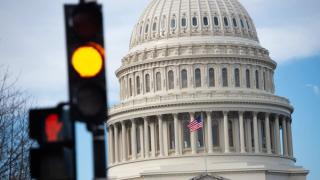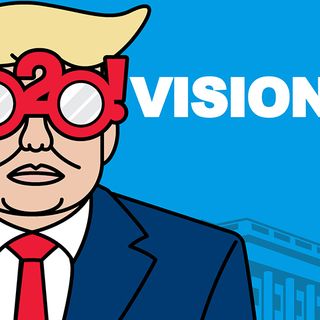The partial shutdown of the US government – at 35 days, the longest in US history – was a clear political loss for President Trump.
The polls showed it. Voters rejected Trump’s connection of a worthy political issue – border security and immigration policy – and closing government agencies and services. It put 800,000 federal employees and their families into financial harm, with collateral damage to the economy. During the shutdown Trump’s disapproval spiked to close to 60 per cent, and his approval fell below 40 per cent. Come 2020, the shutdown may be a defining moment in the Trump presidency, not unlike the gas lines across America during the energy crisis under President Jimmy Carter. Carter was a one-term president.
There are some big takeaways from what has occurred. Foremost is that this won't happen again. The shutdown has now replaced Social Security to become the new 'third rail' of American politics – you touch it and you die. Republicans in the Senate had had enough by the time Trump caved on 24 January and agreed to reopen the government without any money for his wall with Mexico. The 21-day legislative process set up to resolve the issues may not succeed, but Congress will not revert to a shutdown of the government as a hammer to settle immigration policy.
Trump faces two obstacles to making a deal here. First, internal: Trump often talks in extravagant terms about a grand deal that solves the Dreamers issue, and those of other refugees in America without permanent status. But he is always pulled back by his hardliners – Stephen Miller, the Freedom Caucus, Fox News, Steve Bannon. Will he really override them in the end? The work of the bipartisan conference/commission will run into that hardline conservative wall against any give on immigration. Trump ended the Dreamers’s status in 2017 because of the hardline caucus and it is yet to be seen if Trump would break with them in order to sign off on a truly bipartisan deal.
Second, external: Trump does not know how to make a deal in Washington. The master presidential legislators – LBJ (Medicare and civil rights), Reagan (tax reform and deregulation), Clinton (balanced budget), Obama (health care, global warming, Wall Street reform) – enlist their allies on the Hill to get something now, then get more later, and still more later. Trump wants everything now. He only engages seriously with his fellow Republicans; there is never a productive give-and-take session with Democrats. Trump 'negotiates' with Congress the way he negotiates with China: put all the bullets in the gun and start shooting. Washington does not work that way – as Trump found out in the shutdown.
If all fails and Trump goes for the national emergency, he will trade one debacle for another. As a legal matter, Trump likely has the authority to invoke the National Emergencies Act and re-allocate already appropriated funds from the defence, military construction and other budgets to pay for the wall. But the pushback on that – both legal and political – will be enormous. The Trump record before the courts is poor due to sloppy lawyering. Politically, Trump will be messing with billions in funds approved by lawmakers in the House and Senate; he would be robbing their priorities and projects to pay for his wall. This would be unwelcome. Republicans are worried that if Trump does it, a Democratic president could do it, too – a dangerous precedent.







